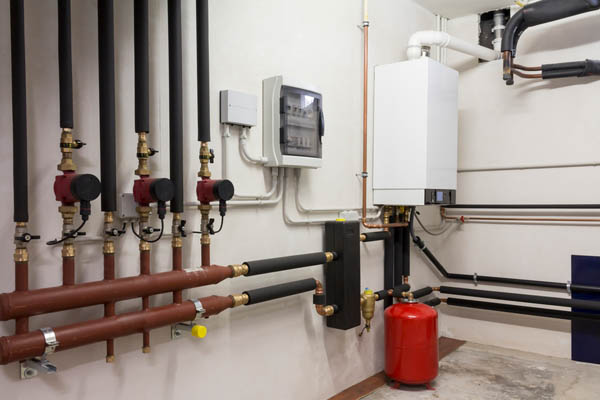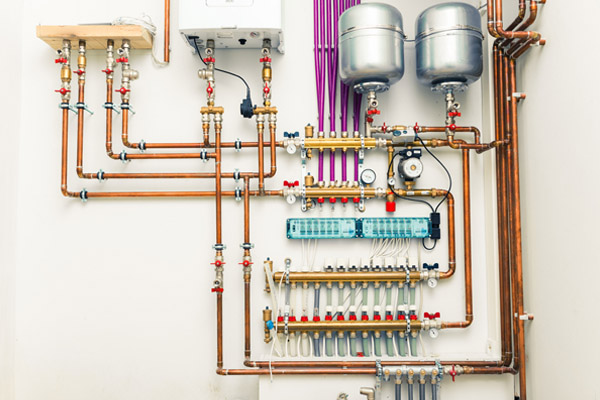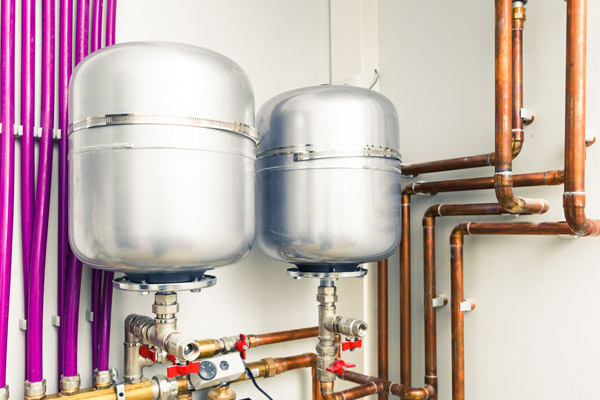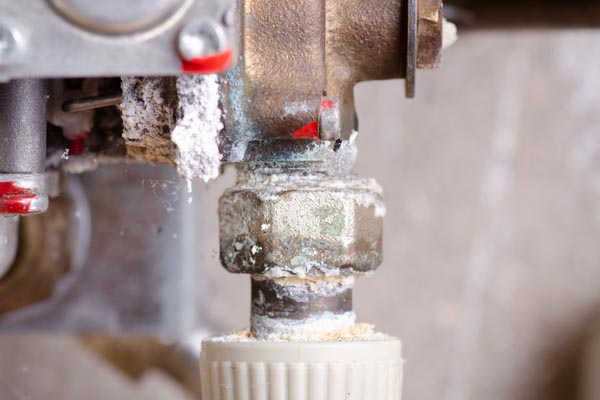Top 5 Reasons Your Boiler Is Leaking

A smoothly operating boiler is crucial to a home’s heating efficiency, delivering essential warmth and comfort through the chillier times of the year. Yet, a frequent challenge that can interrupt this warm balance is the occurrence of boiler leaks. These leaks can affect not only the efficiency of your heating system but also prompt questions about safety and upkeep. In this article, we explore the different reasons behind water leaking from boiler, illuminating this problem while offering detailed guidance on how to tackle and avert incidents of water leaking from your boiler.
Five Common Causes of Boiler Leakage
Table of Contents
1. Issues with the Boiler Pressure Relief Valve

The boiler’s pressure relief valve is essential for venting excess pressure to avoid dangerous pressurization, releasing water or steam if the pressure becomes too high. Leaks in the valve can be caused by excessive system pressure, often from a defective expansion tank, as well as sediment build-up, damaged valves, or incorrect installation.
Ignoring these issues risks sudden releases of hot pressure or steam, leading to potential damage, scalding hazards, or even boiler explosions. Hence, it’s crucial to regularly inspect and maintain the valve and address any issues promptly to ensure the boiler’s safety and effective operation.
2. Deterioration or Impairment of Boiler Pipes

The boiler’s piping system is critical for moving water and steam to heating components like radiators and baseboard units. Corrosion in these pipes, influenced by their age, water quality, and chemical interactions, can be exacerbated by heat, pressure, and water characteristics like high mineral content or acidity.
This corrosion not only leads to leaks, wasting water and decreasing boiler efficiency, but also weakens the pipe structure, risking breakdowns and damage to nearby areas. Furthermore, it can restrict the flow of water or steam, impairing the system’s heat distribution.
3. Compromised Boiler Seals and Gaskets
Seals and gaskets are essential in maintaining the integrity of a boiler system by forming watertight and airtight seals between various boiler parts. Their primary function is to confine water and steam within their respective pathways, thereby averting potential leaks.
The deterioration of seals and gaskets typically arises from regular wear and tear, sustained exposure to high temperatures, and interaction with chemicals or minerals in the water. Such conditions can result in:
- Wearing down
- Reduced pliability
- Development of brittleness
- Higher risk of malfunction
- General wear and tear
- Accumulation of residue
- Quicker wear or potential breakdown
Compromised seals and gaskets in a boiler result in water or steam leaks, leading to decreased pressure and increased water loss. This forces the boiler to use more energy to maintain the desired temperature and pressure, reducing its efficiency. Additionally, these leaks can allow airborne pollutants into the system, further impairing its functionality.
4. Problems with the Boiler Expansion Tank

The expansion tank is crucial for regulating pressure fluctuations in the boiler system, as it compensates for the water’s expansion and contraction with temperature changes. However, if the tank’s bladder or diaphragm is damaged, if there are issues with the air pressure due to malfunctioning air valves, or if maintenance is neglected, serious complications can arise. A waterlogged expansion tank may cause:
- Overly high pressure within the system
- Leakage of water
Improperly calibrated air pressure settings in the expansion tank can result in insufficient pressure relief throughout the heating cycle. This situation presents safety hazards and can negatively impact the boiler’s performance and energy conservation.
5. Degradation of the Boiler Heat Exchanger
The heat exchanger in a boiler conveys heat from the combustion area to the water, which is then circulated through the heating system. Corrosion in the heat exchanger can occur due to poor water chemistry or the accumulation of minerals over time. Such corrosion can cause water to leak or facilitate the escape of dangerous gases, such as carbon monoxide, into the heating system. These problems can reduce the boiler’s efficiency and pose serious health and safety risks.
Indications of a Boiler Leak

Homeowners should be alert to certain signs that may signal a boiler leak. Typical warning signs to watch for include:
- Water accumulations or dripping in the vicinity of the boiler
- Watermarks or changes in color on walls or ceilings near the boiler
- A discernible drop in the boiler system’s pressure
- Prompt attention to these warning signs is essential to avert additional harm to the boiler and adjacent property. Overlooking a boiler leak may result in:
- Wider-ranging damage
- Diminished efficiency
- Potential safety risks
- The proliferation of mold
- Electrical malfunctions
Should homeowners notice indications of a boiler leak, they are advised to act swiftly, such as engaging a qualified technician to evaluate and fix the problem.
Boiler Maintenance
How To Prevent Boiler Leaks
- Arrange for yearly inspections by boiler professionals.
- Keep an eye on the water chemistry and utilize additives when necessary.
- Promptly address issues with pipes that are corroded or impaired.
- Verify that the pressure relief valve is in working order.
- Insulate the pipes and boiler in cooler climates to avoid problems related to freezing.
- Conduct frequent checks on seals, gaskets, and expansion tanks for deterioration or damage.
Why Professional Boiler Inspections and Maintenance Services Are Important
- Trained technicians have the expertise to detect and address issues preemptively, forestalling leaks.
- Such professionals are adept at cleaning and adjusting the boiler to ensure peak efficiency.
- An expert evaluation ensures the system operates safely and meets current regulatory standards.
Steps Homeowners Can Take to Maintain Proper Boiler Operation and Avoid Leaks
- Regularly check the boiler’s pressure and temperature.
- Be alert to any strange sounds or smells coming from the boiler.
- Promptly respond to any indicators of problems by reaching out to an HVAC professional.
- Adhere to the manufacturer’s maintenance, operation, and safety instructions.
- Ensure the boiler’s surrounding space is tidy and has adequate ventilation.
- Think about establishing a preventive maintenance agreement with a reputable service technician.
DIY vs. Professional Boiler Repairs
Choosing between DIY and professional HVAC services for boiler repairs is crucial. DIY attempts risk safety and can worsen the problem due to lack of expertise. Professional technicians, with their experience and specialized tools, ensure safe, correct, and compliant repairs. Therefore, opting for professional help is generally safer and more reliable for boiler issues.
Conclusion
Various factors can lead to boiler leaks, including pressure valve malfunctions, pipe corrosion, compromised seals and gaskets, expansion tank problems, and heat exchanger degradation. Recognizing and swiftly addressing these signs is critical in preventing additional damage and safety risks. It is advisable to rely on professional HVAC services for boiler repairs and upkeep. Professionals possess the essential skills and equipment to effectively troubleshoot and resolve issues, ensuring your boiler’s safe and efficient operation. Proactive measures and timely interventions are key to maintaining the longevity and reliability of your home’s heating system.
Reach Out to Hart Home Comfort for All Your HVAC Needs

Hart Home Comfort is a leading provider of heating, ventilation, and air conditioning services throughout Nassau County, Suffolk County, and Queens, New York. Our expert team consists of highly trained, certified technicians who specialize in HVAC system tune-ups, repairs, installations, and replacements. We’re dedicated to upholding the highest standard of service for our clients.
Understanding the importance of a comfortable and efficient home, Hart Home Comfort offers competitively priced services designed to enhance your living environment while reducing energy costs. Whether it’s a repair or a complete system replacement, our knowledgeable technicians will present you with the best options that fit within your financial plan. We back our work with a guarantee of satisfaction for peace of mind.
To set up a service appointment, simply give us a call. We provide free, in-home estimates to ensure you’re well-informed about your HVAC system options. Trust Hart Home Comfort to deliver exceptional HVAC services that will exceed your expectations!
For any questions about what Hart Home Comfort can do for you, give us a call today. Click here to contact us now or call us at (631) 667-3200 to find out more! Click the link to view our service area.
Related Articles:
